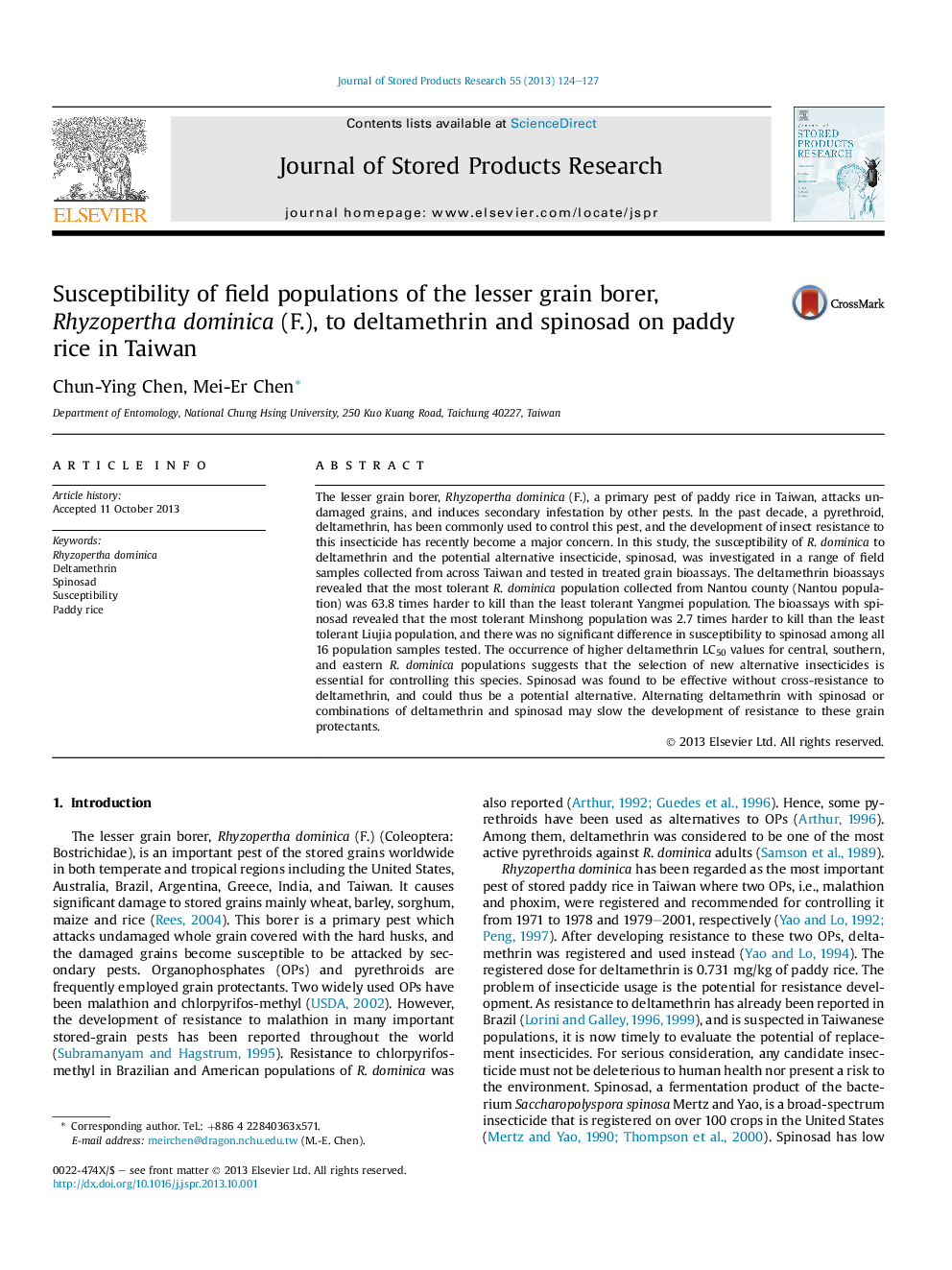| Article ID | Journal | Published Year | Pages | File Type |
|---|---|---|---|---|
| 4517150 | Journal of Stored Products Research | 2013 | 4 Pages |
•In northern Taiwan, R. dominica remains susceptible to deltamethrin.•Rhyzopertha dominica is tolerant to deltamethrin in central, southern, and eastern Taiwan.•Spinosad is effective in killing the R. dominica.•There was no cross-resistance between spinosad and deltamethrin.
The lesser grain borer, Rhyzopertha dominica (F.), a primary pest of paddy rice in Taiwan, attacks undamaged grains, and induces secondary infestation by other pests. In the past decade, a pyrethroid, deltamethrin, has been commonly used to control this pest, and the development of insect resistance to this insecticide has recently become a major concern. In this study, the susceptibility of R. dominica to deltamethrin and the potential alternative insecticide, spinosad, was investigated in a range of field samples collected from across Taiwan and tested in treated grain bioassays. The deltamethrin bioassays revealed that the most tolerant R. dominica population collected from Nantou county (Nantou population) was 63.8 times harder to kill than the least tolerant Yangmei population. The bioassays with spinosad revealed that the most tolerant Minshong population was 2.7 times harder to kill than the least tolerant Liujia population, and there was no significant difference in susceptibility to spinosad among all 16 population samples tested. The occurrence of higher deltamethrin LC50 values for central, southern, and eastern R. dominica populations suggests that the selection of new alternative insecticides is essential for controlling this species. Spinosad was found to be effective without cross-resistance to deltamethrin, and could thus be a potential alternative. Alternating deltamethrin with spinosad or combinations of deltamethrin and spinosad may slow the development of resistance to these grain protectants.
